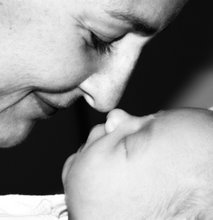* Do NOT allow yourself to become socially isolated. That's a huge NO NO. Nothing but trouble comes from this. You can get high blood pressure and it can lead to other bad things. Get out or have people over who will understand. MINGLE!!! Stay in touch with the world and have something to contribute to conversations.
*Tell your physician that your are a caregiver of a dementia patient (or a cancer patient-about the same thing in terms of what the research is saying). If they are worth their salt, they will know to watch for certain depressive symptoms and even perform certain blood work to assess your immune function. If they don't, get a new physician.
*There are lots of support groups out there. Get into one. For real. What you are experiencing is, tragically, similar to what others are experiencing. You are not alone.
*Find a spiritual connection or a house of faith to source comfort from. Go to church, or temple, or mosque. GO GO GO. Connect with your spiritual essence.
*Meditate/pray each day.
Read the "Caregivers' Bill of Rights" listed below everyday. And please know that you are loved and treasured beyond measure.
by Jo Horne
Author of Caregiving: Helping an Aging Loved One
I have the right:
To take care of myself. This is not an act of selfishness. It will enable me to take better care of my loved one.
I have the right:
To seek help from others even though my loved one may object. I recognize the limits of my own endurance and strength.
I have the right:
To maintain facets of my own life that do not include the person I care for, just as I would if he or she were healthy. I know that I do everything that I reasonably can for this person, and I have the right to do some things for myself.
I have the right:
To get angry, be depressed and express other difficult emotions occasionally.
I have the right:
To reject any attempt by my loved one (either conscious or unconscious) to manipulate me through guilt, anger or depression.
I have the right:
To receive consideration, affection, forgiveness and acceptance from my loved one for as long as I offer these qualities in return.
I have the right:
To take pride in what I am accomplishing and to applaud the courage it sometimes takes to meet the needs of my loved one.
I have the right:
To protect my individuality and my right to make a life for myself that will sustain me when my loved one no longer needs my full-time help.
To expect and demand that as new strides are made in finding resources to aid physically and mentally impaired persons in our country, similar strides will be made toward aiding and supporting caregivers


5 comments:
just a thought. exchange "Caregiver" for "Mother" and it pretty much fits. has anyone made a "Mother's Bill of Rights"? Because I'm fairly certain it would also decrease child abuse and divorce rates. just sayin'.
ps. that last post sounds kinda depressing. i'm speaking generally, not personally. no child abuse or divorce going on here. :)
My grandmother has dementia, and this post reminded me a lot of my mother-who is not a full-time caregiver for her, but still helps out whenever she can. I appreciated this a lot. I'll be sharing it with her.
Mothers are the ultimate caregivers. It's an act of daily compassionate service-often unrewarded and unrecognized. Abby-you're funny...
Brown and Serve: by all means, please share this with your mother. All caregivers need to know this information. What I'm discovering is blowing my mind.
Caregivers are to CareNEEDers as Sweet Georgia Brown is to a southern gentleman.
...poignant, is it not?
Post a Comment